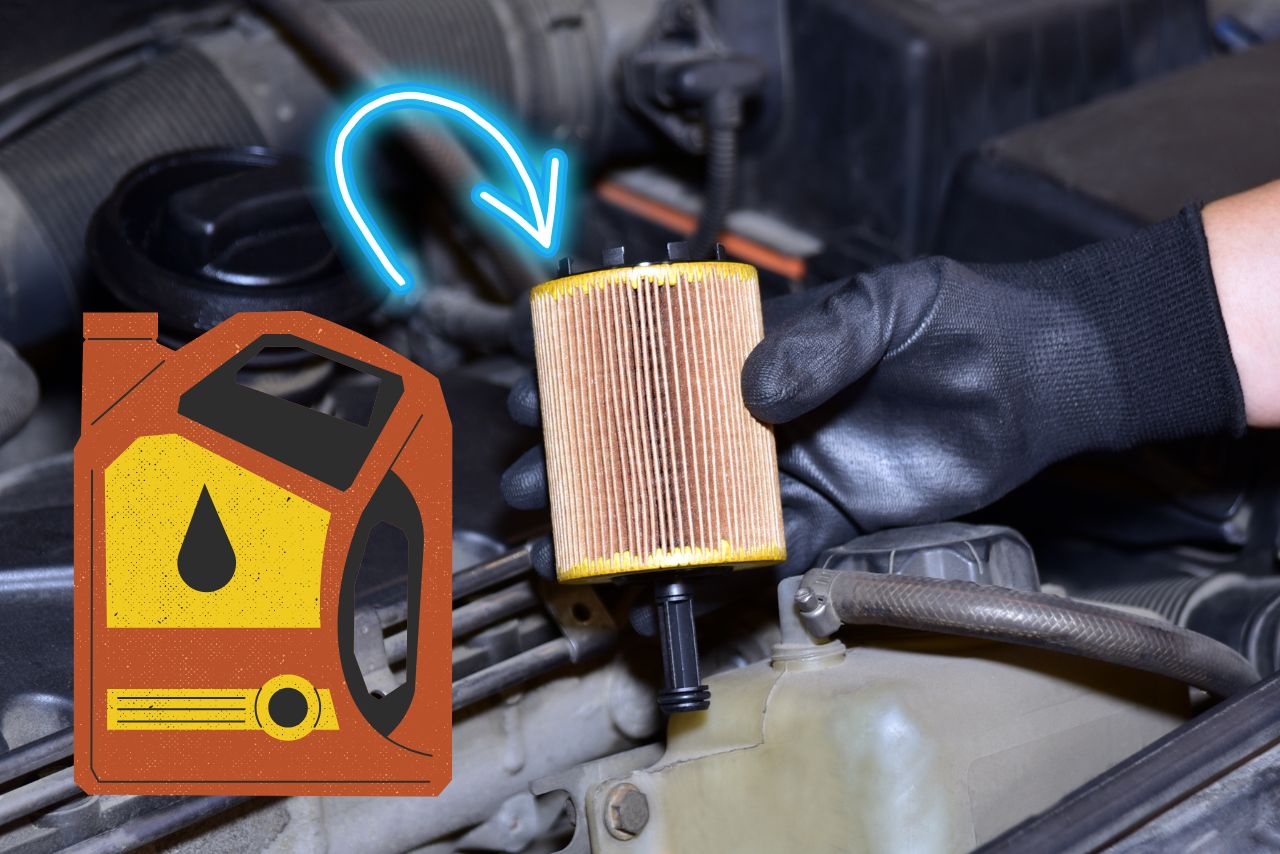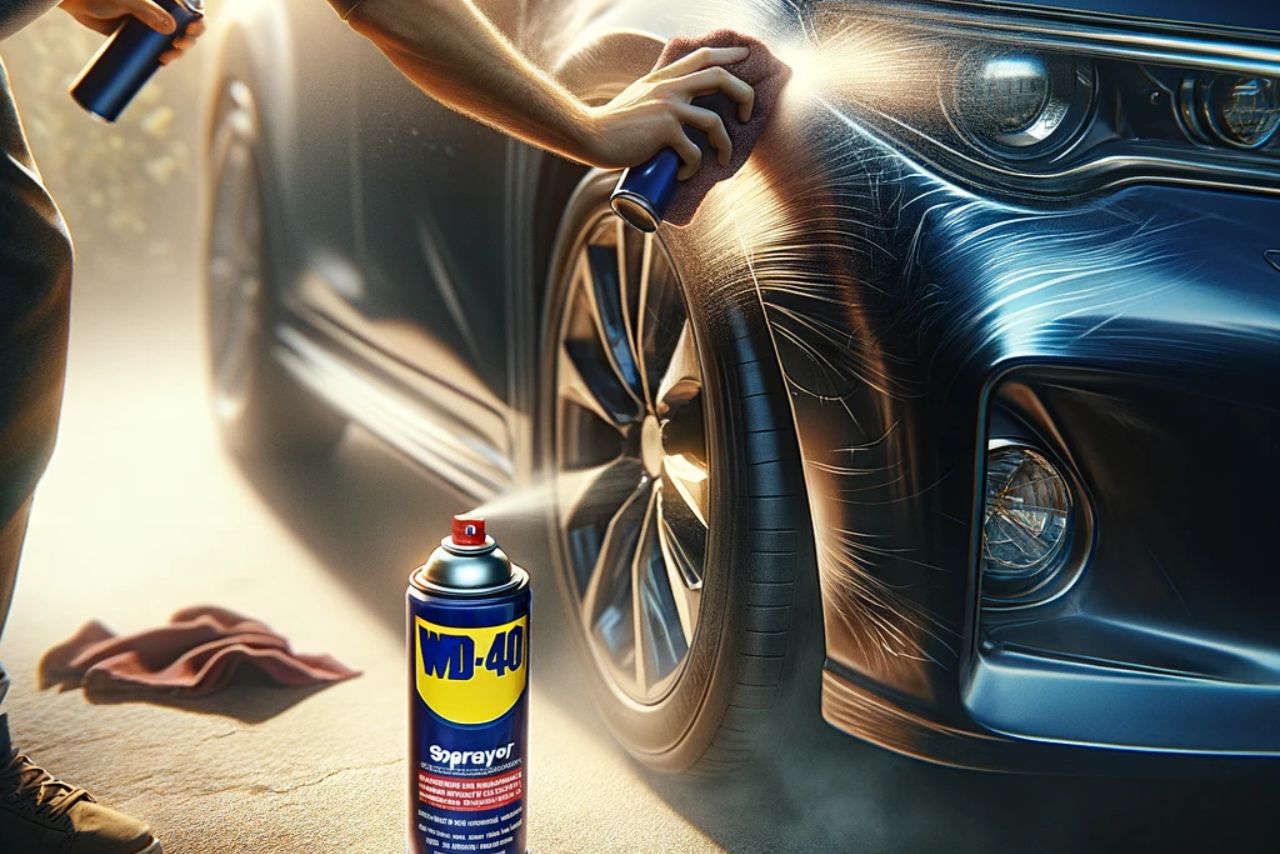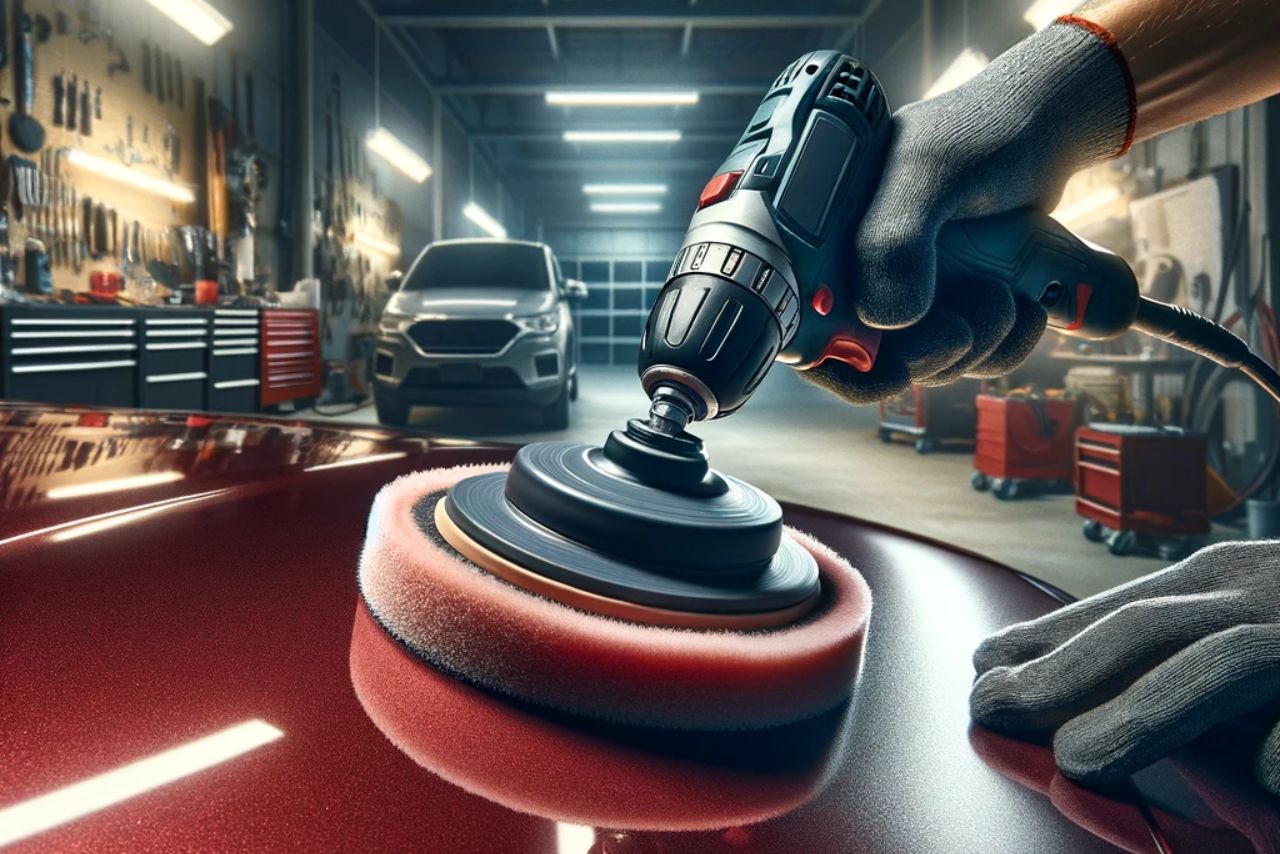Changing your oil filter is an important part of routine maintenance for your vehicle. It helps to keep your engine running smoothly by removing contaminants from the oil that could cause damage over time.
However, many car owners wonder Can You Change Oil Filter Without Changing Oil?
Answer is Yes, you can change the oil filter without emptying the oil, but it may result in some oil loss, typically half a quart to a whole quart depending on the car. It’s essential to prime the filter and lubricate the gasket before installation. While not recommended for all situations, it’s feasible with proper precautions, such as checking for leaks and topping off the lost oil after the filter change.
There are several reasons why someone might want to do this – perhaps they recently had an oil change and noticed their filter was dirty, or maybe they just want to save money on labor costs by doing a simple DIY task themselves.
Table of Contents
Can You Change Oil Filter Without Changing Oil?

Generally Yes, you can change the oil filter without changing the oil. In fact, it is recommended to change your oil filter every time you change your oil. The reason for this is that changing the oil filter will help remove any contaminants that may have accumulated in the old filter.
While it may seem like a waste of money to replace your oil filter when there is still some life left in your current oil, it is important to remember that a clogged or dirty oil filter can lead to engine damage and decreased performance over time.
Changing only the oil filter also allows you to save some money on materials and labor costs compared to doing a full oil change every time.
However, it’s essential to check with your vehicle’s owner manual or mechanic before attempting this process as some vehicles may require an entire replacement of both filters and oils at once due to their specific design requirements.
How To Change Oil Filter Without Changing Oil?
Yes, it is possible to change the oil filter without changing the oil. However, it is important to note that changing the oil filter alone will not solve all your engine problems.
The oil itself can become contaminated with debris and metal shavings that can damage your engine over time.
That being said, if you are in a situation where you need to replace your oil filter but cannot change the oil at the moment, there are steps you can take.
Note that this method should only be used temporarily and an eventual full oil change is still necessary to maintain optimal engine health.
Watch this video for more easy oil filter changing steps:
Do You Need a New Oil Filter Every Oil Change?
While it’s not strictly necessary to change the oil filter with every oil change, it’s generally recommended. The oil filter plays a crucial role in trapping contaminants and debris, preventing them from circulating through the engine.
Over time, the filter can become clogged, reducing its effectiveness. Changing the filter during each oil change helps maintain optimal engine health and prolongs the life of the oil. It’s a small investment for long-term engine performance.
When Do You Need to Change Oil Filter?
Many people wonder if they can change their oil filter without changing their oil. The answer is yes, you can.
Oil filters are designed to work in conjunction with fresh oil, and after some time of use they become clogged with dirt and debris from the engine that they remove.
Changing your oil filter every second time you get your oil changed is a good practice as it helps maintain the quality of your engine’s performance. It is recommended to change your filter every 6,000 miles or six months whichever comes first. This will ensure that your engine has clean oil circulating throughout it at all times.
The oil filter is an essential component of your car’s engine that ensures the proper functioning and longevity of the engine.
It removes impurities such as dirt, metal shavings, and other contaminants from the oil before it flows into the engine.
Over time, these impurities can clog up and reduce the efficiency of the filter, leading to potential damage to your engine.
There are a few signs that indicate when you need to change your oil filter. If you notice decreased fuel economy or power in your vehicle, it could be a sign that your oil filter is clogged and needs replacement.
What Happens If You Don’t Change The Oil Filter?
Changing the oil filter is a crucial part of routine maintenance for your vehicle. The oil filter helps remove contaminants and debris from the engine oil, keeping it clean and flowing smoothly. But what happens if you don’t change the oil filter?
Clogged with dirt and debris:
Over time, the oil filter can become clogged with dirt and debris, preventing it from doing its job effectively.
This can cause the engine to work harder to push oil through the clogged filter, leading to decreased performance and fuel efficiency. If left unchecked, this can eventually lead to engine failure.
Reduced performance:
In addition to reduced performance and potential engine damage, failing to change the oil filter can also void your vehicle’s warranty.
Many manufacturers require regular maintenance as a condition of their warranty, and neglecting this can result in costly repairs that aren’t covered by your warranty.
While it may be tempting to skip changing the oil filter in an effort to save time or money, it’s not worth risking damage to your vehicle or voiding your warranty.
Always follow recommended maintenance schedules and replace both the oil and filter at regular intervals for optimal performance and longevity.
Can You Change both Oil Filter and Oil?
Changing your oil filter and oil at the same time is the ideal way to keep your vehicle running smoothly. However, some people wonder if it is possible to change just the oil filter without changing the oil. The short answer is yes, you can change an oil filter without changing the oil.
The main reason for changing an oil filter is to ensure that contaminants are removed from your engine’s lubrication system.
Over time, debris such as dirt and metal particles can clog up your filter and reduce its efficiency. A dirty or clogged filter means that less clean oil will flow through your engine, which will increase wear on internal components.
If you choose to only replace your oil filter without changing the entire system’s lubricant, it may not be very effective since it still contains a significant amount of contaminated fluid in circulation throughout the engine.
Therefore, we recommend always replacing both items together whenever necessary for optimal performance and longevity of your vehicle’s engine.
More: Does Gumout Work? (Is it Really Worth It? Pros & Cons!)
Benefits of changing oil filter without changing oil:
Changing the oil filter without changing the oil has several benefits. The first is that it allows for the removal of any contaminants that may have accumulated in the filter since it was last changed, which could lead to increased engine performance and longevity.
Benefit 1
Additionally, changing just the filter can be a cost-effective solution for those who cannot afford to change their oil regularly.
Benefit 2
Another benefit of changing only the oil filter is that it can help prevent engine damage caused by dirty or clogged filters.
Benefit 3
A dirty oil filter can cause decreased fuel efficiency, reduced engine power, and even complete engine failure if left unchanged for too long.
Benefit 4
However, it’s essential to note that changing only the oil filter does not replace a full oil change and should not be done as a substitute.
Benefit 5
Regularly scheduled maintenance on your vehicle should include both an oil change and an oil filter replacement to ensure optimum performance and protection for your car’s engine.
Risks of changing oil filter without changing oil:
Changing an oil filter without changing the old oil can lead to serious risks. An old oil filter combined with new clean oil could result in a buildup of dirt and debris that was already present in the old oil.
This build-up can cause the engine to malfunction or even seize up, leading to costly repairs or replacements.
Additionally, not changing the oil itself can cause it to become contaminated with particles from the old filter, leading to inefficiencies in the engine’s performance and reduced fuel economy.
Another risk involved in changing an oil filter without changing the oil is that it could mask other underlying problems within your vehicle’s engine.
When performing a complete oil change, mechanics check for any signs of wear and tear that may need attention before they become more severe issues.
However, if only the filter is changed, potential issues like low fluid levels or leaks may go unnoticed until they become more severe and costly to repair.
In short, while it may seem like an easy shortcut at first glance, changing only your vehicle’s oil filter without also swapping out its used motor oils is not a recommended practice for maintaining long-term health for your vehicle’s engine.
What Happens if You Change the Filter but Not the Oil?

Changing the oil filter without changing the oil can lead to several issues. The filter’s primary function is to remove contaminants such as dirt, metal particles, and carbon deposits from the engine oil.
Overtime filters become clogged with these impurities and lose their efficiency. If you replace a dirty filter but leave old oil in place, it will immediately start clogging up the new filter. This reduces its effectiveness, causing engine damage over time.
Additionally, leaving dirty oil inside your engine can cause wear on critical components such as pistons and bearings due to inadequate lubrication.
It also affects performance by increasing friction between mechanical parts which causes heat buildup leading to overheating or even seizing of the engine.
Therefore it is important to change both your oil and filter regularly for optimal engine performance and longevity.
While replacing just one part may seem like a quick fix, it ultimately leads to more significant problems down the road that could be costly to repair.
How Long Can You Drive without Changing Oil Filter?
While it’s important to change your oil filter regularly, you might be wondering how long you can drive without doing so.
The general rule of thumb is that you should change your oil filter every time you get an oil change, which is usually around every 5,000 miles or six months. However, some experts suggest that certain vehicles can go up to 5,000 to 7,500 miles before needing a new oil filter.
It’s important to note that driving with a dirty or clogged oil filter can lead to decreased engine performance and potentially even damage over time.
While it might not be harmful in the short term, neglecting regular oil and filter changes can add up and cause problems down the road.
If you’re unsure about when to change your oil filter or have concerns about the condition of your current one, it’s always best to consult with a trusted mechanic or refer to your vehicle’s owner manual for recommended maintenance schedules.
Is it OK to hand tighten an oil filter?
When changing an oil filter, it is important to ensure that it is tightened correctly to avoid any potential leaks.
While hand tightening the oil filter may seem like a quick and easy solution, but if not done properly it may not be enough to secure the filter in place.
It’s worth noting that many oil filters come with instructions from the manufacturer advising against hand tightening.
The best way to tighten an oil filter is by using a wrench or a socket at the appropriate torque setting recommended by the manufacturer.
This will ensure that the filter is tight enough to prevent leaks but not so tight that it damages the gasket or threads of the housing.
If you do choose to hand tighten your oil filter, be sure to check for leaks after running your engine for a few minutes.
If there are no signs of leakage, then you can consider your job well done; if there are any problems, however, don’t hesitate to revisit and re-tighten your oil filter with a wrench or socket tool.
Ultimately, taking such precautions when changing an oil filter could save you time and money in repairs down the line when small leaks become big problems.
Should I change the oil filter each time I change the oil?
Determining whether or not you should change your oil filter each time you change your oil may depend on several factors.
Type of driving:
One such factor is the type of driving that you do. If you do a lot of city driving where there is stop-and-go traffic or if you often drive on dirt roads or dusty terrain, then it’s recommended that you replace your oil filter every time you get an oil change.
This will ensure that your engine remains clean and free from contaminants.
Driving conditions:
On the other hand, if your driving conditions are mostly highway-based and less stressful on the engine, then changing the oil filter every other time may be sufficient.
Ultimately, it’s up to the owner’s manual for specific recommendations for each make and model as well as considering driving habits to make a decision about how frequently one should replace their car’s filters when performing routine maintenance checks.
Conclusion and final thoughts 💭
Changing the oil filter without changing the oil is possible and can be done in certain situations. However, it is important to consider the age and condition of both the oil and filter before making that decision.
If the oil is relatively new and clean, changing only the filter may be sufficient. But if it has been a while since your last oil change or the oil appears dirty, it’s best to do a full oil change for optimal engine performance.
Always consult your owner’s manual for recommended maintenance intervals and consult with a mechanic if you are unsure. Remember, maintaining your vehicle is crucial for its longevity and overall safety on the road.
Resources:
https://www.yourmechanic.com/article/how-often-do-oil-filters-need-to-be-replaced





Leave a Reply